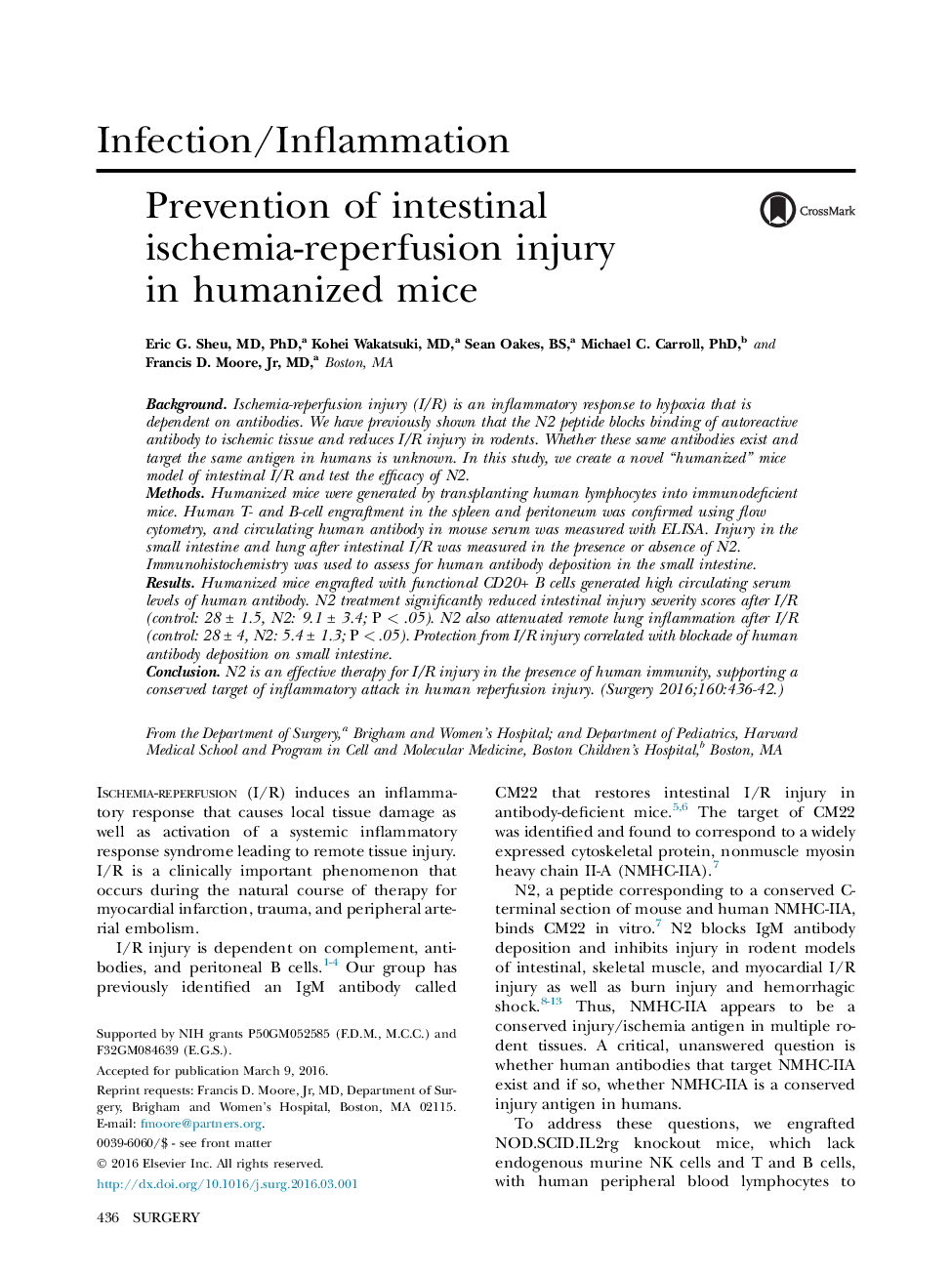| Article ID | Journal | Published Year | Pages | File Type |
|---|---|---|---|---|
| 6254994 | Surgery | 2016 | 7 Pages |
BackgroundIschemia-reperfusion injury (I/R) is an inflammatory response to hypoxia that is dependent on antibodies. We have previously shown that the N2 peptide blocks binding of autoreactive antibody to ischemic tissue and reduces I/R injury in rodents. Whether these same antibodies exist and target the same antigen in humans is unknown. In this study, we create a novel “humanized” mice model of intestinal I/R and test the efficacy of N2.MethodsHumanized mice were generated by transplanting human lymphocytes into immunodeficient mice. Human T- and B-cell engraftment in the spleen and peritoneum was confirmed using flow cytometry, and circulating human antibody in mouse serum was measured with ELISA. Injury in the small intestine and lung after intestinal I/R was measured in the presence or absence of N2. Immunohistochemistry was used to assess for human antibody deposition in the small intestine.ResultsHumanized mice engrafted with functional CD20+ B cells generated high circulating serum levels of human antibody. N2 treatment significantly reduced intestinal injury severity scores after I/R (control: 28 ± 1.5, N2: 9.1 ± 3.4; P < .05). N2 also attenuated remote lung inflammation after I/R (control: 28 ± 4, N2: 5.4 ± 1.3; P < .05). Protection from I/R injury correlated with blockade of human antibody deposition on small intestine.ConclusionN2 is an effective therapy for I/R injury in the presence of human immunity, supporting a conserved target of inflammatory attack in human reperfusion injury.
